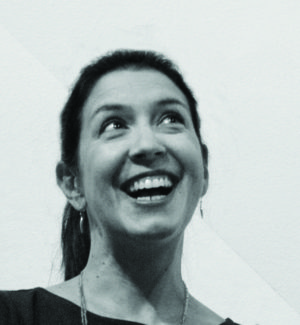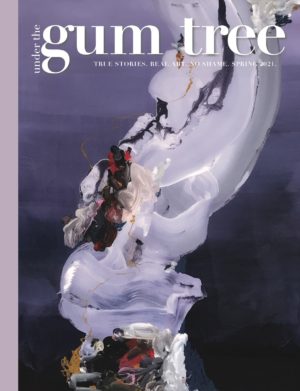Katarina Wong

Speak to your process of picking descriptors. How do you prompt yourself to think? Do you rely more on imagination or memory?
What a great question! It’s a bit of both. I try to sink into the memory, in this case the piece was prompted by mango season, so it wasn’t hard to let myself get lost in my memories and conjure up the tastes, sights, sounds, smells, and emotions.
How was this story affected by the pandemic, whether that be in content, writing process, or any other way? What did you take away from the Pandemic and how does that interact with or reclaim what the Pandemic took away from you?
The story centers around the longing—mine for my mother during a time of year we usually spend together (mango season!), as well as the longing she felt for her family in Cuba that she was separated from for 19 years. Last Summer, the pandemic kept us locked in our respective homes far from each other, but it also gave me time to reflect on what I take for granted, like sitting around a table eating mangoes together. The circumstances of the Pandemic were terrible, but without the distractions of all of the things I thought I had to do, I began to reprioritize what I really wanted to do.
What role has the natural world played in these pieces, either as inspiration, motivation, setting, or process of exploration?
I grew up in Florida but lived my adult life in colder climates. Summer is the season when I most feel like my childhood-self. The heat and humidity make me feel more alive physically, emotionally, and energetically. Like Proust’s madeleines, physical sensations trigger a cascade of memories that I can get lost in and explore: climbing trees, visiting Cuba for the first time as a kid, conversations with my mother about her childhood, and of course, eating mangoes.
I love the way that food is used as a vehicle into family heritage, lineage, and the resilience of parents. Did the process of writing this story help you discover more about your family, your mother, and ultimately, through the first two, yourself? What were the mango-like vehicles that got you there?
During lockdown, our memories of past summers connected us, but we were also connected by the boxes of fruit my mother sent me. I was surprised at how those packages revealed deeper, more nuanced emotional layers about our relationship. They were opportunities to just have long, winding conversations. Some of our chats brought us to her youth growing up in Cuba before the Revolution, to family members now deceased, to stories I might have heard many times before but seemed fresh in the retelling. The distance and our inability to visit each other seemed to act as a lens that brought the most familiar things into a different kind of focus, one I wasn’t expecting. Those small, humble revelations helped me feel my connection to my family in a different, more intense, and poignant way.




